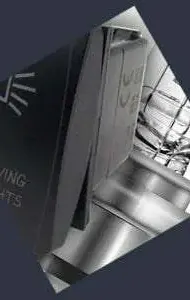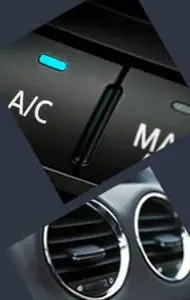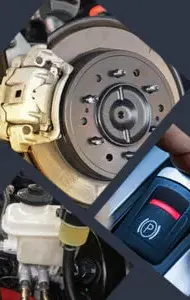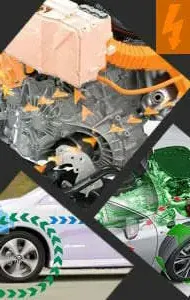Electricity & Electronics

Course Overview
Current vehicles are fitted with more and more electrical and electronic components geared towards providing owners with greater safety and comfort, and to ensure greater sales success for the manufacturer.
To understand the complex relationships between the electrical and electronic systems in a car, it is very important to have the basic knowledges for those who are professionally involved in the repair of the vehicles.
In this course, we intend to find out about, among many other things, electrical concepts such as voltage, current and resistance, as well as the relationship between them, to find about the components that form part of an electrical or electronic circuit such as relays, fuses, capacitors, resistors, diodes and transistors; and to find out about the applications of electromagnetism in the various systems that make up the car, etc.
The main objectives of the course are:
- Learning about the atomic structure of several materials in order to understand the origin of electricity.
- Learning about electrical current and its possible tests.
- Learning about current intensity and its possible tests.
- Learning about electrical resistance and its possible tests.
- Relating voltage, current and resistance using the Ohm’s law.
- Knowing the data that can be obtained from an electrical component through knowing its power.
- Knowing the behavior of electrical resistors depending on how they are connected.
- Studying several resistors on the market and their automotive applications.
- Analysing the operation of basic electronic components: capacitors, transistors, diodes, etc.
- Learning about magnetic fields and their automotive applications.
- Learning about the behavior of the ignition coils and their applications.
- Analysing the self-induction phenomenon.
- Analysing several energy sources of an electrical system.
- Knowing the performance of different types of wires.
- Studying several elements of an electric circuit, such as switches, fuses, receivers and consumers.
- Knowing how to install different components in electrical circuits.
Course Topics
Electricity concepts (75 minutes)
Atomic structure
Electric current
Current intensity
Electrical voltage
Voltage drop
Resistance
Resistivity
Conductance and conductivity
Electrical power
Ohm’s Law
Resistor connections
Test of knowledge
Electronic concepts (140 minutes)
Fixed resistors
Variable resistors (rheostats and potentiometers)
Temperature sensitive resistors (NTC / PTC)
Light sensitive resistors (LDR)
Diode
Zener Diode
LED Diode
Photodiode
Transistor
Capacitor
Test of knowledge
Electromagnetism concepts (95 minutes)
Magnets
Magnetic field on a conductor
Coil and electromagnet
Induced electromotive force
Self-induction
Mutual induction (Transformers)
Electromagnetic force exerted on a conductor
Test of knowledge
Basic components of an electrical circuit (90 minutes)
Introduction
Energy sources
Wiring
Protective elements. The thermal fuse
Receivers and loads
Control elements. Switches, buttons and multi-throw switches
Control elements. The relay
Electrical circuits with relays
Test of knowledge
Self-assessment (25 minutes)
Self-assessment
Average Duration
7 hours
Access This Course
Get access to this course and 30+ more topics by subscribing.
Subscribe to Access All Online Courses
We provide access to all of our online courses for 12 months with a one-time purchase.
£199 ex.VAT per year


